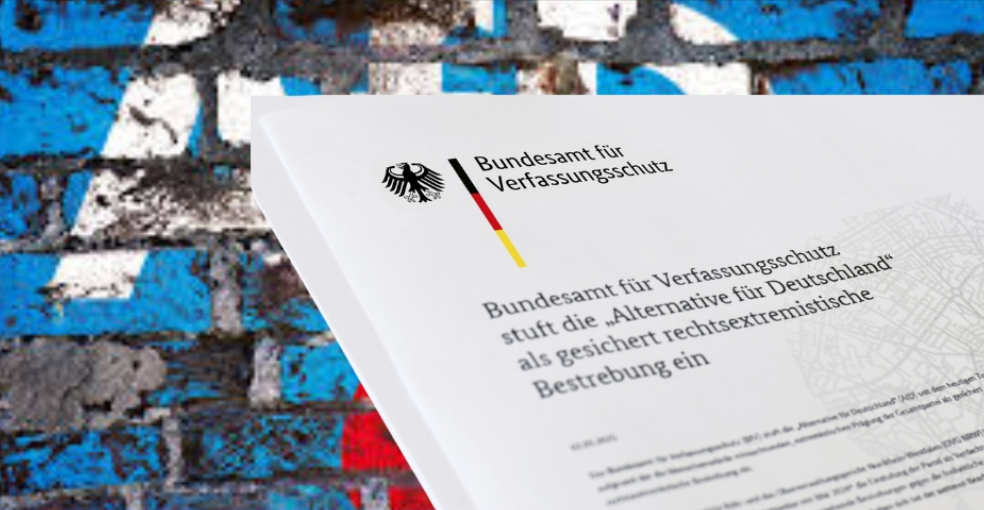AfD and the Silence of the Federal Office for the Protection of the Constitution
Sometimes it is precisely the quiet events that echo the loudest. Such is the decision recently taken by the Federal Office for the Protection of the Constitution (BfV), which has provisionally suspended the classification of the AfD as "confirmed right-wing extremist." They call this a "standstill agreement," an official term whose harmless bureaucratic nature conceals how explosive the decision actually is. A government agency remains silent to prevent damage, thereby inadvertently lending legitimacy to precisely the party that critically views the democratic order.
The AfD celebrates its victory in an expected manner. They speak of "vindication," as if a verdict clearing them of all accusations had already been handed down. Their federal spokespeople, Tino Chrupalla and Alice Weidel, once again deploy the rhetoric of victimhood, portraying themselves as unjustly persecuted. But the reality behind this legal maneuver is more complex, multilayered - and troubling.
It is a dilemma deeply embedded in the heart of democracy: the rule of law also protects those who reject it or at least cast doubt upon it. The AfD exploits precisely those mechanisms of freedom and legal certainty it frequently criticizes. It benefits from the very liberal, democratic legal system whose principles many of its members regularly question. It is a paradoxical spectacle whose tragicomic nature can only exist within a democracy.
The Office for the Protection of the Constitution is thus silent, not because it has changed its stance, but because it fears the consequences of such a classification. Consequences that could be severe, potentially further poisoning the political climate if enacted prematurely. Yet within this silence lies discomfort, a deeper issue. A state silent out of caution, an intelligence service self-muzzled out of tactical prudence - all this raises troubling questions about the resilience and clarity of a democracy.
Ultimately, this is not merely about legal intricacies or tactical restraint. It concerns the fundamental question of whether a democracy can endure indefinitely if it must continually defend itself against its internal adversaries. If it must protect extremists to avoid betraying its own principles. This is the dark irony of the situation: freedom protects those hostile to it.
Of course, it is correct that such decisions should not be taken hastily. Democracy also means exercising patience toward those whose views we reject. Yet the risk remains. The risk that patience turns into leniency, and leniency eventually into impotence. Because while the BfV remains silent, the poison of political radicalization continues to infiltrate people’s minds.
Yet this situation, as distressing as it may seem, also demonstrates democracy's strength. It can withstand this paradox; indeed, it must. It can endure its enemies being protected, as long as the final word has not yet been spoken. This precisely underscores its tragic essence: it must tolerate to remain credible.
Thus, the decision of the Office for the Protection of the Constitution to remain silent is more than just a legal process. It is a moment of self-reflection. A moment when democracy must pause to understand how vulnerable yet indestructible it is. A moment demonstrating that freedom can never be taken for granted because it must continuously be defended - often precisely against those who loudly claim to defend it most passionately.
